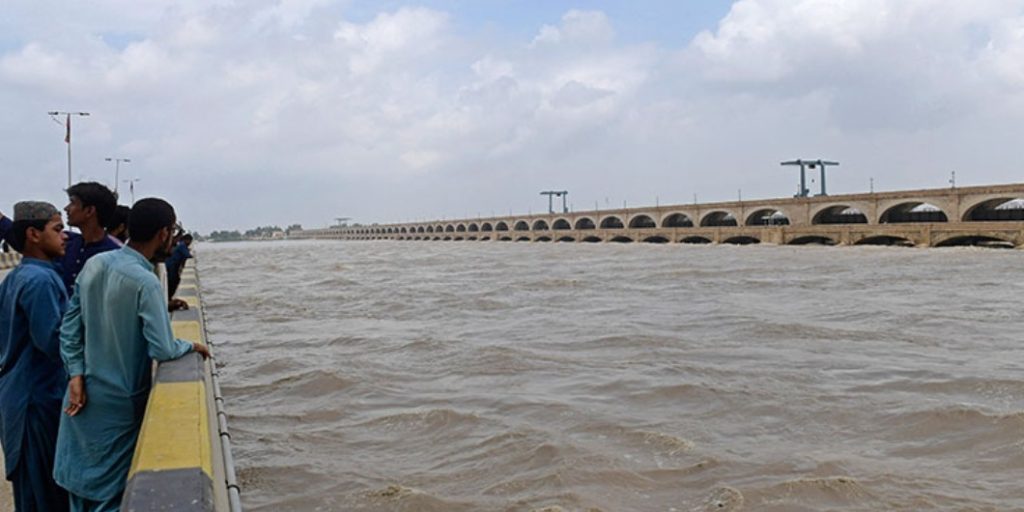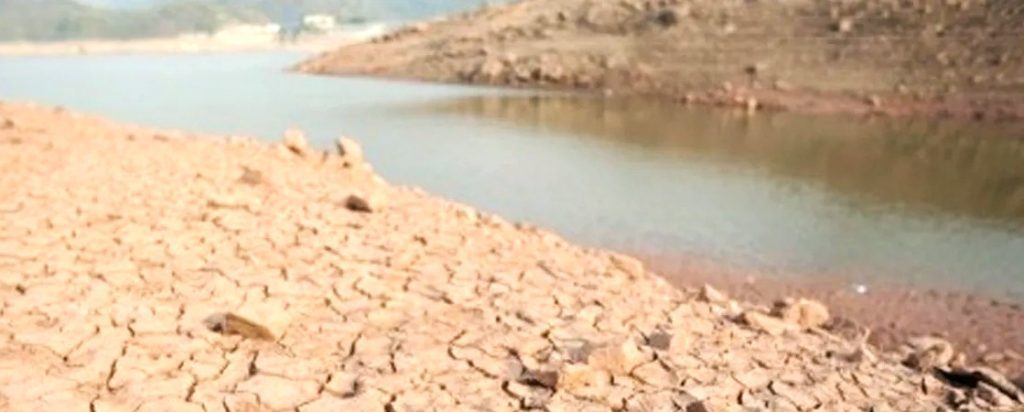
By Imtiaz Hussain
SUKKUR: Sindh is on the brink of a severe water crisis, with authorities anticipating a 50 percent water shortage starting from March 15, prompting the declaration of an emergency. The Indus River System Authority (IRSA) has raised alarms, urging provincial irrigation departments to take swift action as both Tarbela and Mangla dams approach critical levels, expected to hit their dead levels in the coming days.
In a letter dated March 7, IRSA informed the irrigation secretaries across all four provinces that, without rainfall in the catchment areas, the water shortage could range from 30 percent to 50 percent. The letter advised provincial authorities to implement precautionary measures to safeguard crops, as the water deficit looms large.
During the recent Rabi season, Sindh faced a 14 percent water shortage, which was slightly less than the anticipated 16 percent. Punjab, on the other hand, experienced a 20 percent deficit. However, the upcoming crisis is predicted to be far more severe, with significant implications for the region’s agricultural productivity.

In response to the looming crisis, the Director Regulation of Sindh’s Irrigation Department has issued directives to the chief engineers of Sukkur, Guddu, and Kotri barrages, as well as the Sindh Irrigation and Drainage Authority (SIDA). These officials have been instructed to prepare a canal closure schedule, as water supply will soon depend solely on river flows.
According to the Provincial Disaster Management Authority (PDMA), severe water shortages have already created drought-like conditions in several districts, including Karachi, Hyderabad, Thatta, Badin, Tharparkar, Dadu, Sukkur, Ghotki, Khairpur, Shaheed Benazirabad, Naushahro Feroze, Larkana, and Jacobabad. The scarcity of drinking water has further exacerbated the situation in these areas. Farmer leaders have expressed frustration over the lack of planning and timely communication from IRSA and the Sindh Irrigation Department regarding water reserves.
They warn that both the Rabi and Kharif seasons will suffer, with wheat crops in dire need of final irrigation and early cotton sowing set to begin in the southern districts of Sindh, including Mirpurkhas, Umerkot, Sanghar, Tando Allahyar, and Badin, which had planned to start between February 15 and March 1. Farmers are urging the irrigation department to prioritize water supply to wheat-growing districts, followed by the early Kharif areas, in a bid to mitigate the agricultural losses that seem imminent.



